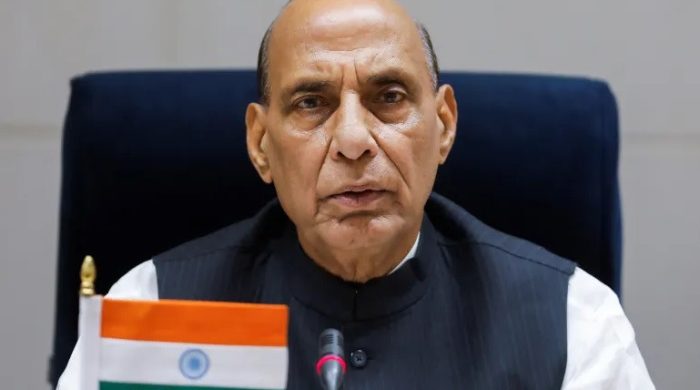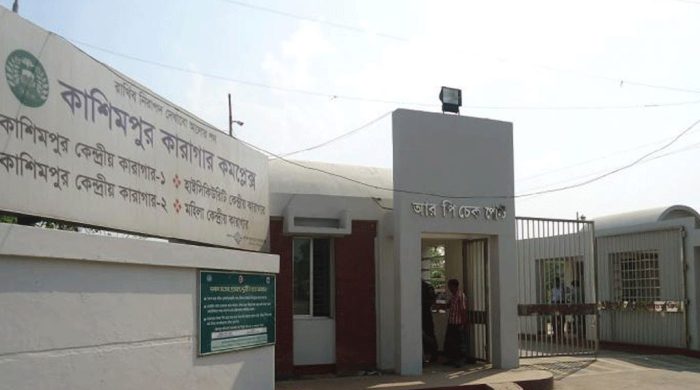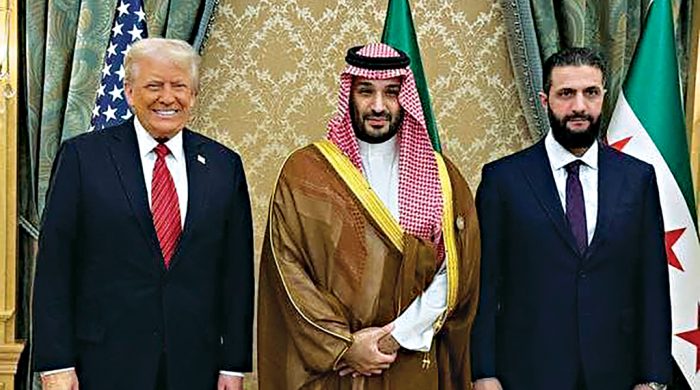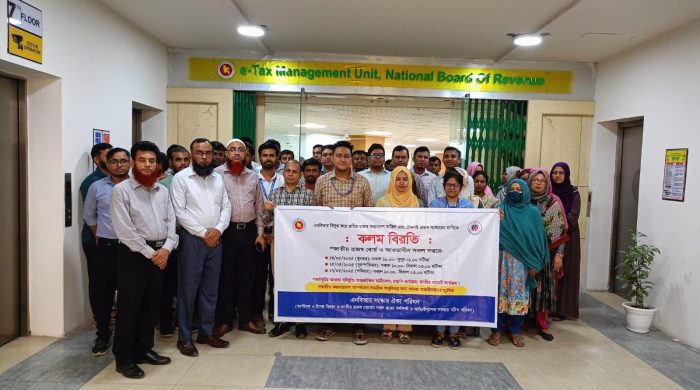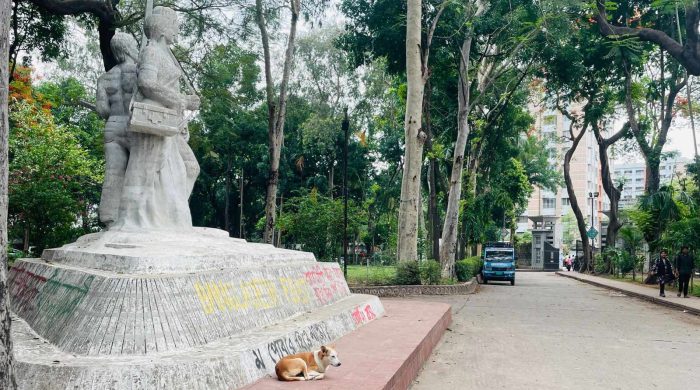Israel continues strike on Syria military sites

- Update Time : Sunday, December 15, 2024
- 20 Time View

A Syria war monitor said Israel launched strikes early Saturday targeting military sites in Damascus and its countryside, in the latest such raids since rebels brought down Bashar al-Assad almost a week ago.
‘Israeli strikes destroyed a scientific institute’ and other related military facilities in Barzeh, in northern Damascus, and targeted a ‘military airport’ in the capital’s countryside, the Syrian Observatory for Human Rights said.
Strikes also targeted ‘Scud ballistic missile warehouses’ and launchers in the Qalamun area, as well as ‘rockets, depots and tunnels under the mountain’, according to the Britain-based Observatory, which has a network of sources inside Syria.
The Observatory said several rounds of bombardment targeted ‘military sites of the former regime forces, as part of destroying what is left of the future Syrian army’s capabilities’.
Israel air strikes on Friday targeted ‘a missile base at the top of Damascus’s Mount Qasyun’, the group said, as well as an airport in southern Sweida province and ‘defence and research labs in Masyaf’, in Hama province.
Since Assad’s fall, Israel has launched hundreds of strikes against Syrian military sites, targeting everything from chemical weapons stores to air defences.
In a move that has drawn international condemnation, Israel also seized a United Nations-patrolled buffer zone on the Syrian Golan Heights just hours after the rebels, led by Islamist group Hayat Tahrir al-Sham, took Damascus.
On Thursday, UN chief Antonio Guterres expressed concern over ‘extensive violations’ of Syrian sovereignty and the Israeli strikes in the country, his spokesman said.
Turkey said it had urged Russia and Iran not to intervene militarily to support Bashar al-Assad’s forces as Islamist-led rebels mounted their lightning advance on Damascus that ended with the Syrian strongman’s ouster.
‘The most important thing was to talk to the Russians and Iranians to ensure that they didn’t enter the equation militarily. We had meetings with (them) and they understood,’ Foreign Minister Hakan Fidan told Turkey’s private NTV television.
He said if Moscow and Tehran, both key Assad allies since the start of the civil war in 2011, had come to the Syrian president’s aid, the rebels could still have won but the outcome could have been far more violent.
‘If Assad had received support, the opposition could have achieved victory with their determination, but it would have taken a long time and could have been bloody,’ he said.
Turkey’s aim was to ‘hold focused talks with the two important power players to ensure minimum loss of life,’ Fidan said.
When the Islamist-led HTS rebel alliance first began its offensive on November 27, Moscow and Tehran initially offered Assad military support to hold off the rebels.
But the scale of the collapse of Assad’s forces took them by surprise.
And it came at a time when both nations were caught up with problems of their own: Russia mired in the war with Ukraine, and Iran’s proxies including Lebanon’s Hezbollah taking a major battering from Israel.
They quickly realised the game was up, that Assad ‘was no longer someone to invest in’ and ‘there was no point anymore’, the Turkish minister added.
Turkey expressed support for the rebels with experts saying it even gave its green light for the offensive by Hayat Tahrir al-Sham (HTS), without being directly involved.
Many nations, especially in the region, have expressed concern about HTS, which is rooted in Al-Qaeda’s former Syria branch and proscribed by many Western governments as a terror organisation.
But Fidan said it was ‘perfectly normal’ to have such concerns about HTS, which would ‘need to be resolved’.
‘No one knows them as well as we do, we want a Syria without terrorism, not posing a threat to the countries in the region.’
Since 2016, Turkey has held considerable sway over northwestern Syria, maintaining a working relationship with HTS which ran most of the Idlib area, which was Syria’s last bastion of opposition.
With open lines of communication with HTS, Turkey was relaying such concerns directly to them, he said.
‘We reflect our friends’ concerns to them and ensure they take steps. They have made many announcements and people see they are on the right track,’ he said.
The message that Ankara was sending to the new administration in Damascus was: ‘This is what Turkey—which has stood by you for years—expects. And this is what the world expects,’ he said.






